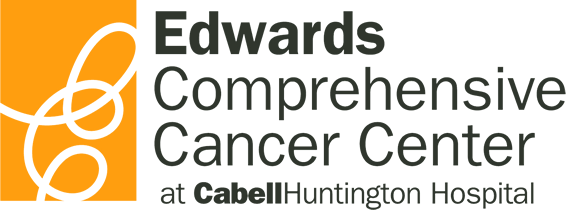Cancer and Genetics
Our genes affect virtually all aspects of how our bodies grow and function. Alterations or mutations in certain genes may increase a person's lifetime risk for certain types of cancer. While a mutated gene does not cause cancer, it can increase an individual's risk for cancer. A person's risk for cancer, however, has many factors besides genetics including diet, exercise, and exposure to environmental influences like cigarette smoke. As a result, some people who carry a mutated gene their entire lives never develop cancer while other people, who do not carry a mutated gene, may develop the disease. While increased risk for breast, ovarian, colon, prostate, and other cancers has been linked to specific mutated genes, scientists are still working to understand the specific interaction genes, behavior, and environment play on cancer risk.
We inherit our genes, including those with mutations, from our parents. A mutation may also occur during a person's lifetime, and the mutated gene may be passed on to his or her children. Gene mutations linked to cancer work in the same way as those linked to other traits or disorders. Some are autosomal recessive, meaning that a person must inherit the mutated gene from both parents in order for the gene to affect them. Others are autosomal dominant, meaning that a person can be affected by a single mutated gene inherited from only one parent. But even if someone inherits two copies of a mutated gene, the gene must be expressed, or turned on, in order to be effective. Behavioral and environmental factors can help to determine whether or not the gene is expressed.
Who is at risk?
While risk is difficult to define, some genetic mutations associated with an increased risk of cancer are found more frequently in specific populations. For example, alterations in the genes BRCA1 and BRCA2 (short for Breast Cancer gene 1 and Breast Cancer gene 2), which are associated with an increased risk for breast and ovarian cancer, are found more frequently in people of Norwegian, Icelandic, Dutch, and Ashkenazi (Eastern European) Jewish descent. An inherited cancer risk may also be suspected in a patient with a strong family history of cancer, generally defined as multiple cases of the same type of cancer in close relatives. Patients who develop cancer at an unusually early age or have a close relative who develops two distinct kinds of cancer (rather than a single cancer that spreads to other parts of the body) may also have an increased cancer risk.
Can it be prevented?
While at present there is only preliminary research on what can be done to control or change individual genes, in cases where a genetic cancer risk is suspected a patient may choose to undergo genetic testing to see whether or not they have an altered gene or genes. Such tests are generally not recommended for the general public for various reasons: genetic testing is expensive, it can be inconclusive, it may not be covered by health insurance, and it can raise serious ethical issues. For example, a positive test for an altered gene does not mean that a person will get cancer. Rather, it means only that their risk for getting cancer sometime during their life may be higher than that of the general population. Similarly, a negative test result does not mean that a person will not develop cancer. Ethicists have also raised concerns that if a person receives genetic testing and is found to have an altered gene, he or she could be discriminated against by insurance companies or employers. Finally, genetic tests impact not only the person being tested but also his or her family. In cases where a genetic link to cancer may be inherited, the decision of one person to seek testing affects all relatives who may have inherited the same gene.
Gene therapy, in which the mutated portions of genes are "repaired", is currently being investigated in a number of research studies. Some approaches target healthy cells to enhance their ability to fight cancer. Other approaches target cancer cells, to destroy them or prevent their growth.
The bottom line
A person's genetic makeup is only one factor that determines whether or not he or she will develop cancer.
Some people may have mutated genes linked to an increased risk of cancer and never develop cancer. On the other hand, people may not have mutated genes and get cancer.
When a genetic susceptibility to cancer is suspected, individuals can undergo genetic counseling and testing to find out more about their risk and make treatment decisions to reduce it.
Courtesy of the National Cancer Institute
